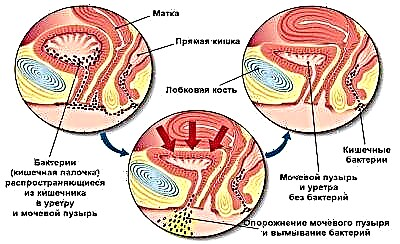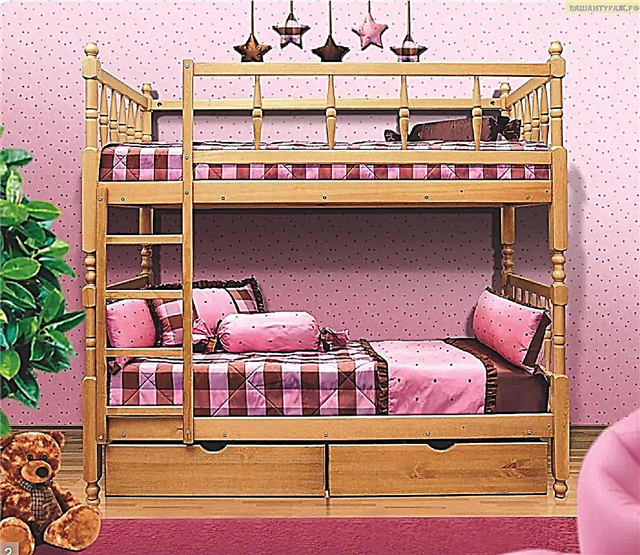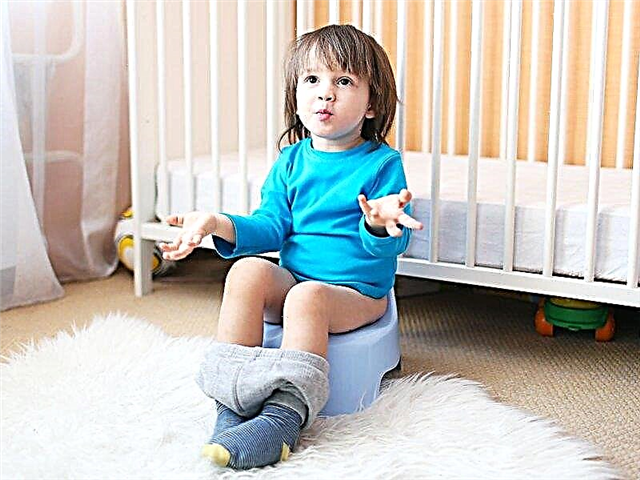
Cystitis is an unpleasant inflammatory disease of the bladder, which, according to statistics, is more common among children and women. Very often, there are no apparent reasons for the disease, and painful urge to use the toilet appears after a person is very nervous. Therefore, there is such a thing as psychogenic or psychosomatic cystitis.
General information
Cystitis is an inflammation of the bladder. It is believed that the most common cause of the disease is an infectious cause - microbes that enter the urinary tract. The cause of inflammation can also be kidney disease and impaired functioning, some problems with hormonal levels, herpes infection, disruption of the nervous system, hypovitaminosis.
Often, the disease manifests itself in women during the period of bearing a child, as well as after childbirth. Hypothermia, decreased immunity contribute to the development of the disease.
Cystitis is manifested by frequent and painful urination, while the amount of urine can be significantly reduced. Cuts during emptying of the bladder are pronounced. In the intervals between trips to the toilet, aching unpleasant pains are observed in the lower abdomen, in the urethra, and the temperature may rise.

When is a disease considered psychosomatic?
A disease that does not have a clearly traceable anatomical or physiological cause is considered psychosomatic. It usually develops under certain psychogenic conditions. Wherein no bacterial or viral component is detected in urine tests... In recent years, urologists and nephrologists even have a separate term - neurogenic cystitis, that is, inflammation, the symptoms of which develop on a nervous basis. True, experts do not explain exactly what experiences and emotions can cause inflammation of the bladder.
The psychosomatic origin of the disease should be suspected and considered even if the prescribed treatment does not help get rid of cystitis, with chronic cystitis, especially in women and children, who are more emotional than men.
Most often, such cystitis accompanies very specific events and experiences in a person's life - for one it starts every time before important exams or the delivery of a responsible job, for another - as a reaction to a family quarrel. If such a pattern is noticed, then we can say with confidence that cystitis has psychosomatic causes.

Causes
Psychosomatics regards fluids in the body as a symbol of emotions and desires. Blood symbolizes life, the desire to live, the ability to enjoy this process, saliva is the desire to receive information from the outside, and urine is spent emotions that have already become unnecessary and accumulate in the bladder, so that as it fills, the brain can give the command to empty the bladder, get rid of of everything that has accumulated.
From the point of view of psychosomatics, any problems with urination indicate that the person is trying to restrain old emotions, refuses to part with them easily.
Cystitis usually indicates that a person subconsciously does not let go of his old, unnecessary emotions, and urinary incontinence (which often accompanies cystitis) as a symptom indicates that a person does not know how to control his own emotions.
This explains why the disease is so widespread among women and children, because their emotional world is very rich and sometimes turns out to be "overwhelmed" with old and already unnecessary experiences.
Psychosomatic medicine, thanks to the work of many psychotherapists and psychoanalysts, has data on what is the psychological portrait of a patient with chronic neurogenic cystitis. Studies have shown that it is people who have high moral principles, and for this reason alone they cannot overstep some prohibitions imposed from outside.

This character was beautifully described by Stephen King in "The Green Mile" - where the main character, being a very responsible and obligatory and highly moral person, suffered from painful attacks of cystitis. They want to keep a person in subjection, and every action that can lead to his freedom , triggers streams of words whose purpose is to shame.
Women, according to many experts, more often suffer from cystitis from the fact that they are explained from childhood that sexual desires and their manifestations for the fairer sex are ashamed and indecent.
People who are very vulnerable and vulnerable in everything related to their success most often suffer from cystitis. They are painful about criticism, even a simple remark can cause a strong shock, which is almost always accompanied by an exacerbation of inflammation of the bladder mucosa.
They hardly know how to smile at their own shortcomings, to joke about this topic. Especially often, cystitis worsens before events in which a person needs to show independence, the ability to critically look at himself, for example, before important competitions, before exams, before the birth of a child.
In pregnant women, cystitis is very often associated with another psychological nuance - the loss of sexual attractiveness for the opposite sex. A woman with a big belly does not always cause sexual desires even from her own husband, let alone other members of the stronger sex. A woman "in position" feels awkward, unwanted, and this is what triggers in her the mechanism of shame and exposing her own "shortcomings", which leads to frequent and very painful urination.

Illness in childhood
Childhood cystitis is very interesting for psychosomats. If a child often suffers from an illness and doctors just throw up their hands, prescribing another useless treatment that will help for a short time, it is important to evaluate which of the adults is involved in raising the baby. The person who plays the leading role in this can humiliate and constantly shame the child, trying to get him to obey (“don’t shout, don’t run, shame on you!”, “I am very ashamed of your behavior”). It is understandable that a parent or grandmother wants to make a good, conscientious person out of the boy, but somehow everyone forgets that the child has his own desires.
Most children who are registered with a urologist or nephrologist grow up in families where a lot of attention is paid to their upbringing... Kids are not left to themselves, they have highly moral grandmothers or parents who do not get tired of teaching the child constantly how and what to do and what not to do, because it is "shameful".
What's going on with the baby? He believes in adults. He quickly takes everything at face value and begins to actually feel guilty, ashamed of himself, his desires, his disobedience and actions. His involuntary mistakes complete a vicious circle of pain and shame becomes almost natural.
The only way to interrupt a series of neurogenic cystitis in this case is to protect the child from such caregivers, if they themselves do not want to accept and understand that they are "going too far."

Researchers' opinion
Many authors touch on the topic of cystitis. So, a psychotherapist Valery Sinelnikov, a respected person in psychosomatics, is sure that psychogenic cystitis almost always causes a feeling of false shame... If you convince a person that he should not be ashamed of his thoughts, desires, emotions, then there will be no trace of the disease.
Louise Hay and Liz Burbo, who compiled tables of psychosomatic causes of ailments, are sure that the cause of cystitis is that accumulated irritation that a person does not know how to express and express due to external pressure... The psychology of the disease is such that, according to the researchers, anger always takes place, but it can have different forms and manifestations.
So, cystitis with blood usually indicates that a person is irritated with life and someone close to him, family members, and pus in the urine speaks of an old and long-standing grievance that does not leave.

Treatment
The most important step in treating neurogenic cystitis is gaining self-confidence and understanding that there are no shameful or ugly desires. If a person has any thoughts of which he begins to be painfully ashamed, it is important to find out why this is happening - whether this is a child's attitude, instilled by parents, or there are other reasons.
It is important for people with chronic cystitis not to be manipulated... Every time they try to control them, appealing to their shame and conscience, you should step aside and not do what they demand, just because this shame was artificially created for you by someone. Leave the right to decide for yourself, make decisions, take responsibility for them, enjoy the decision-making process, even if they, in the opinion of someone, should cause you an attack of burning bashfulness. They should, but they don't have to.
Women with frequent cystitis problems should visit a psychologist or sexologist. Usually they have many reasons why there are difficulties in their personal intimate life, which are important to eliminate in order to raise their own self-esteem.

Separately, I would like to say about childhood cystitis.
As long as the child is pressured and appealed to his conscience every time he tries to do something that the elders do not understand, the problem will be insoluble. It is the parents or the grandmother who should go to the psychologist, because the treatment of the baby should be started with the correction of those educational measures that they habitually use every day.
The older the child, the more difficult it can be to treat protracted chronic cystitis, because destructive attitudes have already penetrated deeply into the subconscious. In any case, you need to teach the child to relax, stop blaming yourself for what, in fact, he did not even do.
At any age, in order to get rid of an illness, it is important to learn not to regret old emotions, not to hold grudges and anger - let go of all this easily and naturally, without accumulating to a state in which the worked-out thoughts will irritate the mucous membrane of the bladder. In order to get rid of them in time and correctly, it is worth doing active sports, swimming and walking, running, boxing, do everything that helps to get rid of unpleasant memories, replace them with positive feelings.
If the true cause can be found and eliminated, episodes of cystitis will become rare, and then completely stop.




